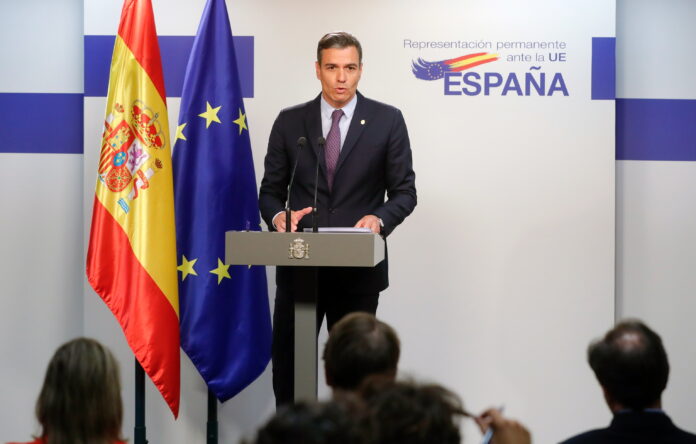The President of the Government, Pedro Sánchez, announced this Friday that our country will participate, together with Poland, Luxembourg and France, in a large-scale operation to try to get up to 8,000 tons of cereals and grain from Ukraine to the Spanish ports of the Mediterranean.
Today, four months after the start of the invasion, Ukrainian ports continue to be blocked by Russia, and millions of tons of essential food for countries around the world are at risk of rotting. The United Nations has been working for a long time to try to convince Vladimir Putin to allow the cereals to leave, but given the lack of results, Europe is looking for ad hoc solutions.
“The output of cereal crops is imperative, more than 20 million tons that cannot be moved from their ports. We have appealed to Putin and we support the initiative of the UN Secretary General, but even so, we cannot stand still. Let’s see what happens in the Black Sea. Following the request of the European Commission to use solidarity corridors, Spain has worked these weeks with a public-private collaboration project for the departure of cereals by rail since mid-July”, explained Pedro Sánchez from Brussels, where he has participated these days in a European Council together with the rest of the continental leaders.
“This project led by Spain in collaboration with the Polish Government, Luxembourg and France will begin with a pilot phase to remove 8,000 tons in three months, which will be stored in silos in Spanish Mediterranean ports, which will allow exports to Mediterranean countries”, he added. President. It will be kyiv that decides where to allocate the cargo.
Moncloa sources explain that the idea is to make a corridor from the Polish city of Poznan to Tarragona, Barcelona or Cartagena. The trains will leave Ukraine, change convoys for the gauge in Poland, cross Germany, Luxembourg and France and arrive in our country, and from there, from those silos, the grain will be distributed to the countries of North Africa and the Maghreb, very threatened by famine. The same sources indicate that the president communicated it to the rest of the leaders on Thursday during the meetings, and that it will begin, as a public-private initiative, in the middle of next month. Renfe will provide the trains for the final part of the journey, and Spain will assume a good part of the costs, they add.
The goal is to get up to 600 tons out of Ukraine in the first two weeks in an effort coordinated by the Ministry of Transport, Mobility and Urban Agenda. The cereals, moved by the French SNCF and Renfe, would take an average of six days to reach our shores. And if everything works as expected, it would be possible to export 8,000 tons in three months.
Ukraine has been exporting grain as best it could since the invasion. By land to the Baltic and there by sea or with routes through Poland and Romania, which involves moving the grain from the train to the ship on the Danube and then back to the sea from Constanta, on the Black Sea. You can, but it is much slower and more expensive, so new ways are now being sought. “It is a weapon of war”, denounced and lamented the high representative Josep Borrell.
Conforms to The Trust Project criteria








